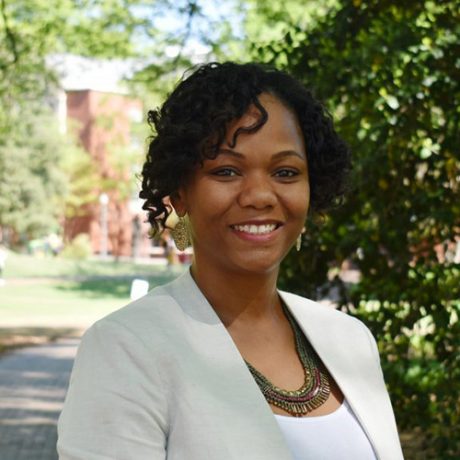Jemilia Davis ‘19PHD
 Educational Research and Policy Analysis
Educational Research and Policy Analysis
Director for Strategic Initiatives and External Relations
Belk Center for Community College Leadership and Research, NC State College of Education
Jemilia Davis ‘19PHD has always had an interest in executive leadership and its role in promoting student success. When a colleague and friend of hers encouraged Davis to look into the educational research and policy analysis specialty area within the Educational Leadership, Policy and Human Development doctoral program, the name alone attracted her, as well as the cohort model and the faculty. With a student affairs background, she wanted an opportunity to dive into policy, remain close to human development and focus on educational leadership.
Now, Davis serves as the director of strategic initiatives and external relations for the Belk Center for Community College Leadership and Research at the NC State College of Education. In that role, she provides critical leadership and support for initiatives that advance the center’s mission at the intersection of research, executive leadership and serving community colleges in increasing student success equitably across the state.
Davis leads a research team that focuses on executive leadership and identifying where community colleges are today through their strategic plans, coordinates the planning and implementation of the annual Dallas Herring Lecture and Advisory Board meeting, guides the center’s fundraising and development strategy and leads the center’s communication efforts.
[marketing-quote color=’blue’ align=’center’ img=” source=’Jemilia Davis’ quotes=’true’]Throughout my coursework, I had the opportunity to learn from faculty members about policy, organizational theory, critical race theory and methodologies that inform my work today.[/marketing-quote]
Her Story
“As a graduate student, I was able to learn more about community colleges through my work with the PACE Survey (NILIE). I have always been interested in executive leadership and its role in promoting student success, primarily for Black and Brown students. Throughout my coursework, I had an opportunity to dive into the research around the topic and had the opportunity to learn from faculty members about policy, organizational theory, critical race theory and methodologies that inform my work today.
The educational research and policy analysis doctoral program helped me view problems and propose solutions from a system level. To support 58 community colleges through the center requires individualized and broad thinking. So when specific problems arise and the center looks for ways to support colleges, we have to think about what can impact our small, rural colleges as well as our large, urban schools (and those in between). Many of my courses introduced me to researchers, theories and materials that helped me to become comfortable and think this way simultaneously.”